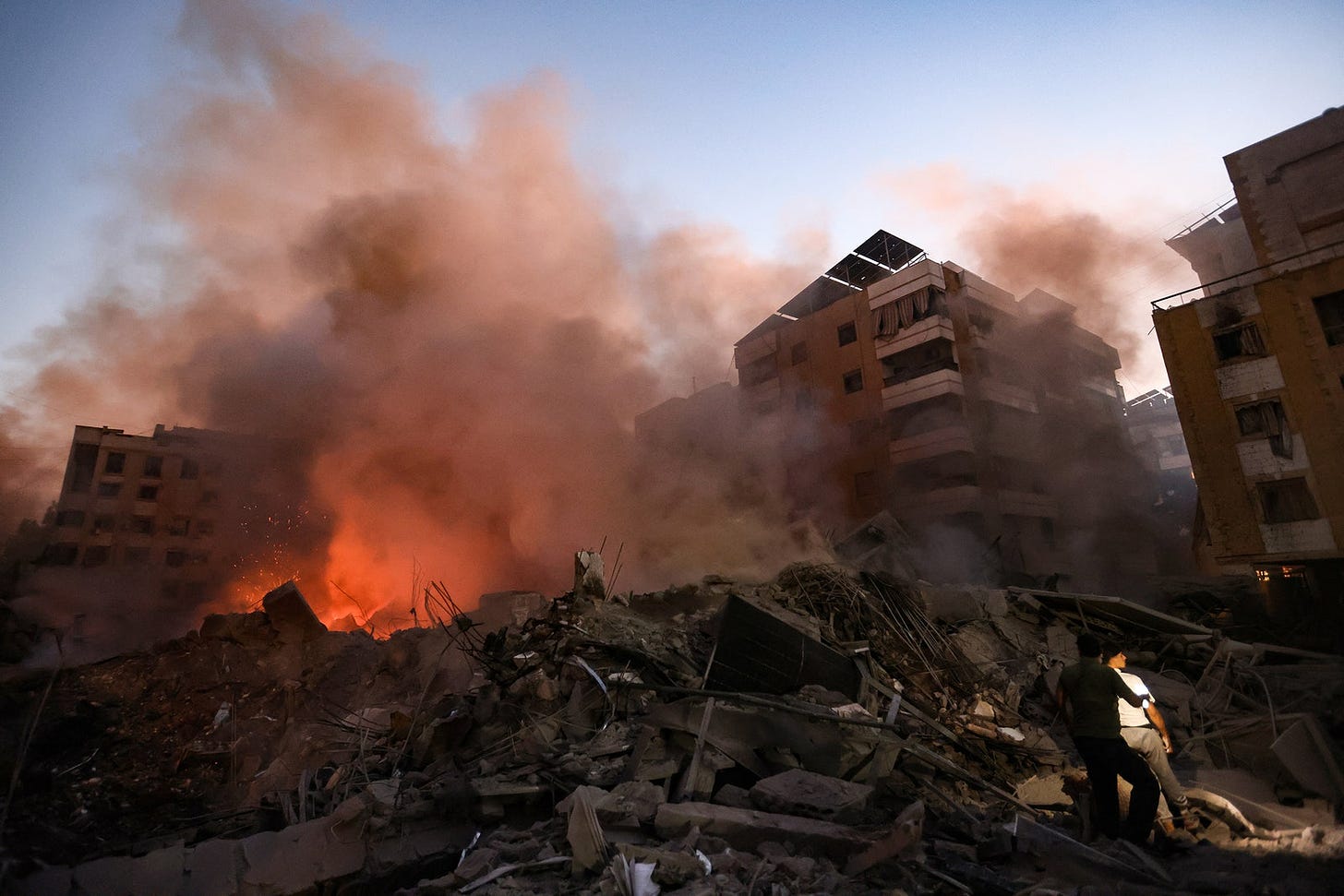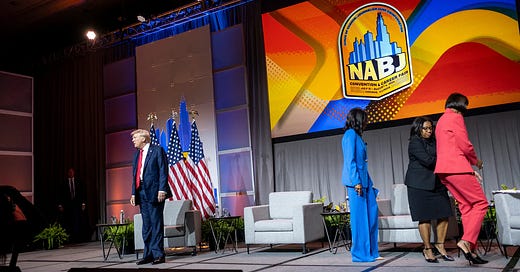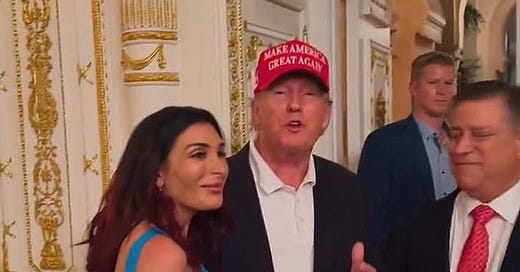
Live by the bomb, die by the bomb: Hassan Nasrallah, the leader of Hezbollah since 1992, was killed yesterday in an Israeli airstrike on the terror sect’s headquarters in a suburb south of Beirut. Israel has been trying to knock out the leadership of Hezbollah for decades. Israel also killed Ibrahim Aqil, Hezbollah’s head of military operations, in another airstrike a week ago, on Friday, September 20, along with some 20 other Hezbollah military commanders, according to Israeli sources. Aquil was wanted by the U.S. as the mastermind of the bombing of the U.S. Embassy in Beirut in April of 1983 and the bombing of the Marine barracks later the same year. Sixty-three Americans and Lebanese civilians died in the attack on the U.S. Embassy. The truck-bombing of the Marine barracks killed 241 U.S. military personnel.
Nasrallah ordered countless suicide bombings inside Israel and cross-border rocket attacks by Hezbollah on Israeli farms and settlements in northern Israel over the years. A Muslim cleric as well Hezbollah leader, Nasrallah was revered among Shiite Muslims but hated by Sunnis for the role Hezbollah played in keeping the brutal dictator Bashar al-Assad in power in Syria. Nasrallah was credited with driving Israel out of the border zone its forces occupied in Lebanon for nearly two decades and for fighting Israel’s military when it invaded Lebanon again in 2006 after a Hezbollah cross-border raid kidnapped an Israeli soldier. The 2006 invasion of Lebanon by Israel lasted just over a month and caused the destruction of much of southern Lebanon’s infrastructure. But that didn’t put a dent in Nasrallah’s support by Lebanese Shiites, who had become Lebanon’s largest religious minority.
The strikes on Hezbollah military headquarters yesterday and Friday a week ago reflects the success of Israel’s Mossad intelligence agency in penetrating Hezbollah’s political and military leadership. Both strikes were said to have occurred during gatherings of Hezbollah military and political leaders in the southern suburb of Dahiyeh where Hezbollah is said to maintain a compound. Hezbollah has confirmed the death of Nasrallah, and it is expected that other senior commanders died in the strike with him.
The Israeli killing of Nasrallah also reflects the huge imbalance of power between Israel and its enemies in the region. Israel used its huge air force to carry out the hundreds of airstrikes against Hezbollah missile and rocket caches in southern Lebanon over the last week, as well as the strikes on Nasrallah and Aquil, the senior military commander of Hezbollah. But every military conflict from World War II through Korea, Vietnam, Iraq and Afghanistan has proved that air power and bombing alone cannot vanquish determined enemies.
Guerrilla movements like Hezbollah in Lebanon, the Houthis in Yemen, and Hamas in Gaza don’t have fighter jets, but they have rockets and missiles, some or most of them supplied by Iran, to use against their enemy, Israel. Iran has an air force, but it used missiles in its attack on Israel in April of this year.
Israel and the U.S. have both used missile strikes to kill enemy leaders. In 2020, the U.S. used a military drone armed with a precision missile to kill Qasem Soleimani, the commander of Iran’s Quds Force, a branch of Iran’s Revolutionary Guards. Israel is said to have used as many as 80 bombs to hit the buildings under which Hezbollah concealed its command center.
In the struggle that has riven the Middle East ever since Israel declared its Independence in 1948, it hasn’t mattered who has the biggest air force or the most missiles and bombs and drones. For years, the only strikes the PLO or other Palestinian forces were able to make against Israel were by suicide bombs and suicide attacks by small bands of guerrilla fighters.
But they kept it up. So did Hezbollah, even after Israel withdrew from southern Lebanon in the 1980’s, the 1990’s, and 2006. The death of Hassam Nasrallah isn’t going to stop them, and it certainly won’t stop Israel’s much larger and more powerful enemy, Iran.
Remember all those times the Bush administration announced that they had killed yet another “leader” or “lieutenant” in al Qaeda? We’ve still got troops in Iraq and Syria, now fighting ISIS, yet another al Qaeda-like radical Muslim group. In Afghanistan, we drove out al Qaeda, but we empowered the Taliban. Over the 20 years we were there, the U.S. military announced that dozens of Taliban leaders had been killed in precision air strikes. We don’t have troops there anymore, and the Taliban rules the country where more than 2,000 Americans lost their lives.
You can kill a military leader. You can assassinate a political leader. But you can’t assassinate an idea. The idea that motivates Hezbollah and Iran and Hamas is that there are Jews who must be driven from lands they consider theirs. That idea is not going away. Neither is Israel, or Hamas, or Hezbollah, or Iran, or the Houthis. The bombs that killed Nasrallah did not end anything. Hezbollah will hit back, and Israel will hit Hezbollah again. I wrote my first articles on this conflict more than 50 years ago. If I’m still around in 20 years, I’ll still be writing about it.
Wars don’t go away. As they have for millennia, wars just kill new generations of soldiers and civilians.













All Netanyahu has done is ensure an entire generation of Lebanese and Gazan kids will hate Israel forever with the white hot heat of a thousand burning suns. It will never end.
Total killed since the shooting began is over 40,000 people.
This stopped being a Just War five days after it began.
Bibi is as mentally damaged as his friend trmp.
We sufficiently defended Israel’s right to exist a year ago.
Bibi should be on his own now.
I despise what he has done, and I am not fond of him.